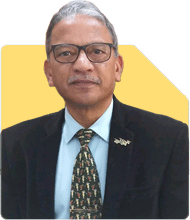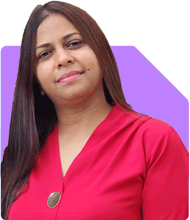I am 67 years I have monthly income 5 to 7 Lac 5 to 10 % increase every year sitting at home doing nothing. I am single with out any liability every thing I have 5 house i own is paid off. Should I warry about any thing.
Ans: It’s fantastic that you’ve built such a strong financial foundation. At 67, having a monthly income of Rs 5 to 7 lakhs, increasing by 5 to 10% annually, is impressive. Owning five houses, all paid off, is a remarkable achievement. Let’s explore whether you should worry about anything and how you can optimize your financial well-being.
Assessing Your Income and Expenses
You have a substantial income stream. Let’s analyze your financial position.
Monthly Income: Rs 5 to 7 lakhs, increasing annually by 5 to 10%.
Expenses: You didn’t mention specific expenses, but we’ll assume they are moderate given your comfortable position.
Ensuring a Comfortable Lifestyle
At this stage, your primary goal should be ensuring a comfortable and worry-free lifestyle. Let’s break down essential aspects to consider.
Emergency Fund
Even with a high income, an emergency fund is crucial. It provides a safety net for unforeseen expenses.
Recommendation: Maintain an emergency fund covering at least one year’s worth of expenses. This should be in a liquid form like a savings account or liquid mutual funds.
Health and Medical Insurance
Healthcare can become a significant expense as you age. It’s essential to have comprehensive health insurance.
Recommendation: Ensure you have a robust health insurance policy that covers various medical needs. Regularly review and update the policy to match your requirements.
Wealth Preservation
With no liabilities and substantial assets, your focus should shift to preserving and growing your wealth. Let’s explore investment options.
Mutual Funds
Mutual funds are a great way to grow your wealth. They offer diversification and professional management.
Types of Mutual Funds
Equity Funds: These invest in stocks and are ideal for long-term growth. They carry higher risk but offer higher returns.
Debt Funds: These invest in bonds and are suitable for short-term goals. They offer stability and lower risk.
Hybrid Funds: These invest in both equities and debt, offering a balanced risk-return profile.
Advantages of Mutual Funds
Diversification: Spread your risk across various assets.
Professional Management: Experts handle your investments.
Liquidity: Easily buy and sell units.
Systematic Investment Plans (SIPs): Invest small amounts regularly, ensuring disciplined savings.
Power of Compounding
Investing in mutual funds harnesses the power of compounding. Over time, your investments grow exponentially. The earlier and longer you invest, the more significant the benefits.
Risk Management
Investing involves risk. Understanding and managing risk is crucial.
Equity Funds: High risk, high return. Suitable for long-term goals.
Debt Funds: Low risk, low return. Suitable for short-term goals.
Hybrid Funds: Medium risk, balanced return. Suitable for moderate risk tolerance.
Diversifying Investments
Diversifying your investments reduces risk and enhances returns. Let’s explore different asset classes.
Equities: Invest in well-managed companies with growth potential.
Debt Instruments: Include bonds and fixed deposits for stability.
Gold: A small allocation to gold can act as a hedge against inflation.
Regular Review and Rebalancing
Regularly review your investment portfolio. Rebalance it to match your changing risk tolerance and financial goals.
Recommendation: Conduct an annual review of your investments. Adjust your portfolio to stay aligned with your objectives.
Estate Planning
With substantial assets, estate planning becomes crucial. Ensure your wealth is transferred smoothly to your chosen beneficiaries.
Key Components of Estate Planning
Will: A legally binding document that outlines how your assets should be distributed.
Trusts: Useful for managing and protecting your assets.
Nomination: Ensure all your financial instruments have updated nominations.
Charitable Giving
If you’re inclined towards philanthropy, consider charitable giving. It not only benefits society but also provides tax benefits.
Recommendation: Allocate a portion of your wealth towards causes you care about. This can be through direct donations or setting up a charitable trust.
Final Insights
At 67, you’re in an excellent financial position with substantial income and assets. Ensuring a comfortable lifestyle, preserving and growing your wealth, and planning for the future are key. Focus on maintaining an emergency fund, having robust health insurance, diversifying investments, and estate planning. Regularly review and adjust your financial plan to stay on track.
Your proactive approach and financial discipline are commendable. Continue making informed decisions to secure a worry-free future.
Best Regards,
K. Ramalingam, MBA, CFP,
Chief Financial Planner,
www.holisticinvestment.in





























